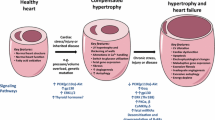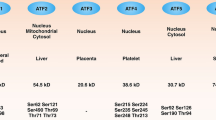Abstract
Psychological stress has been recognized as a well-documented risk factor associated with β2-adrenergic receptor (β2-AR) in the development of pancreatic cancer. Aldo–keto reductase 1 member B1 (AKR1B1) is a potential interacting partner of β2-AR, but the effect of their interaction on pancreatic cancer cells is not known at present. We found a positive correlation between AKR1B1 and β2-AR expression in pancreatic cancer tissue samples, and co-localization of these proteins in the human pancreatic cancer BXPC-3 cell line. Compared to the controls, the CFPAC-1 and PANC-1 pancreatic cancer cells overexpressing β2-AR and AKR1B1 respectively showed significantly higher proliferation rates, which is attributed to higher proportion of cells in the S phase and decreased percentage of early apoptotic cells. Furthermore, overexpression of β2-AR led to a significant increase in the expression of AKR1B1 and phosphorylated extracellular signal-regulated kinase (p-ERK1/2). Overexpression of AKR1B1 significantly decreased β2-AR levels and increased that of p-ERK1/2. Taken together, β2-AR directly interacted with and up-regulated AKR1B1 in pancreatic cancer cells, and promoted their proliferation and inhibited apoptosis via the ERK1/2 pathway. Our findings also highlight the β2-AR-AKR1B1 axis as a potential therapeutic target for pancreatic cancer.





Similar content being viewed by others
References
Rahib L, Smith BD, Aizenberg R, Rosenzweig AB, Fleshman JM, Matrisian LM (2014) Projecting cancer incidence and deaths to 2030: the unexpected burden of thyroid, liver, and pancreas cancers in the United States. Cancer Res 74(11):2913–2921. https://doi.org/10.1158/0008-5472.can-14-0155
Siegel RL, Miller KD, Jemal A (2018) Cancer statistics, 2018. Cancer J Clin 68(1):7–30. https://doi.org/10.3322/caac.21442
Humphris JL, Johns AL, Simpson SH, Cowley MJ, Pajic M, Chang DK, Nagrial AM, Chin VT, Chantrill LA, Pinese M, Mead RS, Gill AJ, Samra JS, Kench JG, Musgrove EA, Tucker KM, Spigelman AD, Waddell N, Grimmond SM, Biankin AV (2014) Clinical and pathologic features of familial pancreatic cancer. Cancer 120(23):3669–3675. https://doi.org/10.1002/cncr.28863
Schuller HM (2017) Regulatory role of G protein-coupled receptors in pancreatic cancer development and progression. Curr Med Chem. https://doi.org/10.2174/0929867324666170303121708
Partecke LI, Speerforck S, Kading A, Seubert F, Kuhn S, Lorenz E, Schwandke S, Sendler M, Kessler W, Trung DN, Oswald S, Weiss FU, Mayerle J, Henkel C, Menges P, Beyer K, Lerch MM, Heidecke CD, von Bernstorff W (2016) Chronic stress increases experimental pancreatic cancer growth, reduces survival and can be antagonised by beta-adrenergic receptor blockade. Pancreatology 16(3):423–433. https://doi.org/10.1016/j.pan.2016.03.005
Malsy M, Gebhardt K, Gruber M, Wiese C, Graf B, Bundscherer A (2015) Effects of ketamine, s-ketamine, and MK 801 on proliferation, apoptosis, and necrosis in pancreatic cancer cells. BMC Anesthesiol 15:111. https://doi.org/10.1186/s12871-015-0076-y
Guo K, Ma Q, Wang L, Hu H, Li J, Zhang D, Zhang M (2009) Norepinephrine-induced invasion by pancreatic cancer cells is inhibited by propranolol. Oncol Rep 22(4):825–830. https://doi.org/10.3892/or_00000505
Bortolato B, Hyphantis TN, Valpione S, Perini G, Maes M, Morris G, Kubera M, Kohler CA, Fernandes BS, Stubbs B, Pavlidis N, Carvalho AF (2017) Depression in cancer: the many biobehavioral pathways driving tumor progression. Cancer Treat Rev 52:58–70. https://doi.org/10.1016/j.ctrv.2016.11.004
Pu J, Zhang X, Luo H, Xu L, Lu X, Lu J (2017) Adrenaline promotes epithelial-to-mesenchymal transition via HuR-TGFbeta regulatory axis in pancreatic cancer cells and the implication in cancer prognosis. Biochem Biophys Res Commun 493(3):1273–1279. https://doi.org/10.1016/j.bbrc.2017.09.146
Cano CE, Iovanna JL (2010) Stress proteins and pancreatic cancer metastasis. Sci World J 10:1958–1966. https://doi.org/10.1100/tsw.2010.186
Theccanat T, Philip JL, Razzaque AM, Ludmer N, Li J, Xu X, Akhter SA (2016) Regulation of cellular oxidative stress and apoptosis by G protein-coupled receptor kinase-2; The role of NADPH oxidase 4. Cell Signal 28(3):190–203. https://doi.org/10.1016/j.cellsig.2015.11.013
Matsuura N, Nagasawa K, Minagawa Y, Ito S, Sano Y, Yamada Y, Hattori T, Watanabe S, Murohara T, Nagata K (2015) Restraint stress exacerbates cardiac and adipose tissue pathology via beta-adrenergic signaling in rats with metabolic syndrome. Am J Physiol-Heart Circ Physiol 308(10):H1275–H1286. https://doi.org/10.1152/ajpheart.00906.2014
Weddle DL, Tithoff P, Williams M, Schuller HM (2001) Beta-adrenergic growth regulation of human cancer cell lines derived from pancreatic ductal carcinomas. Carcinogenesis 22(3):473–479. https://doi.org/10.1093/carcin/22.3.473
Wan C, Gong C, Zhang H, Hua L, Li X, Chen X, Chen Y, Ding X, He S, Cao W, Wang Y, Fan S, Xiao Y, Zhou G, Shen A (2016) beta2-adrenergic receptor signaling promotes pancreatic ductal adenocarcinoma (PDAC) progression through facilitating PCBP2-dependent c-myc expression. Cancer Lett 373(1):67–76. https://doi.org/10.1016/j.canlet.2016.01.026
Bresson E, Lacroix-Pepin N, Boucher-Kovalik S, Chapdelaine P, Fortier MA (2012) The prostaglandin F synthase activity of the human aldose reductase AKR1B1 brings new lenses to look at pathologic conditions. Front Pharmacol 3:98. https://doi.org/10.3389/fphar.2012.00098
Kaur N, Vanita V (2016) Association of aldose reductase gene (AKR1B1) polymorphism with diabetic retinopathy. Diab Res Clin Pract 121:41–48. https://doi.org/10.1016/j.diabres.2016.08.019
Torres-Mena JE, Salazar-Villegas KN, Sanchez-Rodriguez R, Lopez-Gabino B, Del Pozo-Yauner L, Arellanes-Robledo J, Villa-Trevino S, Gutierrez-Nava MA, Perez-Carreon JI (2018) Aldo-Keto reductases as early biomarkers of hepatocellular carcinoma: a comparison between animal models and human HCC. Dig Dis Sci 63(4):934–944. https://doi.org/10.1007/s10620-018-4943-5
Ebert B, Kisiela M, Wsol V, Maser E (2011) Proteasome inhibitors MG-132 and bortezomib induce AKR1C1, AKR1C3, AKR1B1, and AKR1B10 in human colon cancer cell lines SW-480 and HT-29. Chem Biol Interact 191(1–3):239–249. https://doi.org/10.1016/j.cbi.2010.12.026
Wu X, Li X, Fu Q (2017) AKR1B1 promotes basal-like breast cancer progression by a positive feedback loop that activates the EMT program. J Exp Med 214(4):1065–1079. https://doi.org/10.1084/jem.20160903
Xiao M, Li T, Ji Y, Jiang F, Ni W, Zhu J, Bao B, Lu C, Ni R (2018) S100A11 promotes human pancreatic cancer PANC-1 cell proliferation and is involved in the PI3K/AKT signaling pathway. Oncol Lett 15(1):175–182. https://doi.org/10.3892/ol.2017.7295
Liu J, Cui X, Qu L, Hua L, Wu M, Shen Z, Lu C, Ni R (2016) Overexpression of DLX2 is associated with poor prognosis and sorafenib resistance in hepatocellular carcinoma. Exp Mol Pathol 101(1):58–65. https://doi.org/10.1016/j.yexmp.2016.06.003
Wang M, Chen DQ, Chen L, Cao G, Zhao H, Liu D, Vaziri ND, Guo Y, Zhao YY (2018) Novel inhibitors of the cellular RAS components, Poricoic acids, target Smad3 phosphorylation and Wnt/beta-catenin pathway against renal fibrosis. Br J Pharmacol. https://doi.org/10.1111/bph.14333
Kim-Fuchs C, Le CP, Pimentel MA, Shackleford D, Ferrari D, Angst E, Hollande F, Sloan EK (2014) Chronic stress accelerates pancreatic cancer growth and invasion: a critical role for beta-adrenergic signaling in the pancreatic microenvironment. Brain Behav Immun 40:40–47. https://doi.org/10.1016/j.bbi.2014.02.019
Zhang D, Ma QY, Hu HT, Zhang M (2010) beta2-adrenergic antagonists suppress pancreatic cancer cell invasion by inhibiting CREB, NFkappaB and AP-1. Cancer Biol Ther 10(1):19–29. https://doi.org/10.4161/cbt.10.1.11944
Snow A, Shieh B, Chang KC, Pal A, Lenhart P, Ammar D, Ruzycki P, Palla S, Reddy GB, Petrash JM (2015) Aldose reductase expression as a risk factor for cataract. Chem Biol Interact 234:247–253. https://doi.org/10.1016/j.cbi.2014.12.017
Barski OA, Tipparaju SM, Bhatnagar A (2008) The aldo-keto reductase superfamily and its role in drug metabolism and detoxification. Drug Metab Rev 40(4):553–624. https://doi.org/10.1080/03602530802431439
Gros J, Manning BS, Pietri-Rouxel F, Guillaume JL, Drumare MF, Strosberg AD (1998) Site-directed mutagenesis of the human beta3-adrenoceptor–transmembrane residues involved in ligand binding and signal transduction. Eur J Biochem 251(3):590–596. https://doi.org/10.1046/j.1432-1327.1998.2510590.x
Procino G, Carmosino M, Milano S, Dal Monte M, Schena G, Mastrodonato M, Gerbino A, Bagnoli P, Svelto M (2016) beta3 adrenergic receptor in the kidney may be a new player in sympathetic regulation of renal function. Kidney Int 90(3):555–567. https://doi.org/10.1016/j.kint.2016.03.020
Gage RM, Kim KA, Cao TT, von Zastrow M (2001) A transplantable sorting signal that is sufficient to mediate rapid recycling of G protein-coupled receptors. J Biol Chem 276(48):44712–44720. https://doi.org/10.1074/jbc.M107417200
Renz BW, Takahashi R, Tanaka T, Macchini M, Hayakawa Y, Dantes Z, Maurer HC, Chen X, Jiang Z, Westphalen CB, Ilmer M, Valenti G, Mohanta SK, Habenicht AJR, Middelhoff M, Chu T, Nagar K, Tailor Y, Casadei R, Di Marco M, Kleespies A, Friedman RA, Remotti H, Reichert M, Worthley DL, Neumann J, Werner J, Iuga AC, Olive KP, Wang TC (2018) beta2 adrenergic-neurotrophin feedforward loop promotes pancreatic cancer. Cancer Cell 33(1):75–90.e77. https://doi.org/10.1016/j.ccell.2017.11.007
Wu MP, Zhang YS, Zhou QM, Xiong J, Dong YR, Yan C (2016) Higenamine protects ischemia/reperfusion induced cardiac injury and myocyte apoptosis through activation of beta2-AR/PI3K/AKT signaling pathway. Pharmacol Res 104:115–123. https://doi.org/10.1016/j.phrs.2015.12.032
Garg J, Feng YX, Jansen SR, Friedrich J, Lezoualc’h F, Schmidt M, Wieland T (2017) Catecholamines facilitate VEGF-dependent angiogenesis via beta2-adrenoceptor-induced Epac1 and PKA activation. Oncotarget 8(27):44732–44748. https://doi.org/10.18632/oncotarget.17267
Takahashi K, Kaira K, Shimizu A, Sato T, Takahashi N, Ogawa H, Yoshinari D, Yokobori T, Asao T, Takeyoshi I, Oyama T (2016) Clinical significance of beta2-adrenergic receptor expression in patients with surgically resected gastric adenocarcinoma. Tumour Biol 37(10):13885–13892. https://doi.org/10.1007/s13277-016-5139-2
Hu P, He J, Liu S, Wang M, Pan B, Zhang W (2016) beta2-adrenergic receptor activation promotes the proliferation of A549 lung cancer cells via the ERK1/2/CREB pathway. Oncol Rep 36(3):1757–1763. https://doi.org/10.3892/or.2016.4966
Zhang D, Ma Q, Wang Z, Zhang M, Guo K, Wang F, Wu E (2011) beta2-adrenoceptor blockage induces G1/S phase arrest and apoptosis in pancreatic cancer cells via Ras/Akt/NFkappaB pathway. Mol Cancer 10:146. https://doi.org/10.1186/1476-4598-10-146
Acknowledgements
This study was supported by National Natural Science Foundation of China (Grant Nos. 81472272 and 81602114), Natural Science Foundation of Jiangsu Province (Grant No. BK20161286), Postdoctoral Science Foundation of China (Grant No. 2017M620221), and Social Development Foundation of Nantong City (Grant Nos. MS22016056, and MS12017002-6).
Author information
Authors and Affiliations
Corresponding authors
Ethics declarations
Conflict of interest
The authors declare that there are no conflicts of interest among them.
Rights and permissions
About this article
Cite this article
Xiao, MB., Jin, DD., Jiao, YJ. et al. β2-AR regulates the expression of AKR1B1 in human pancreatic cancer cells and promotes their proliferation via the ERK1/2 pathway. Mol Biol Rep 45, 1863–1871 (2018). https://doi.org/10.1007/s11033-018-4332-3
Received:
Accepted:
Published:
Issue Date:
DOI: https://doi.org/10.1007/s11033-018-4332-3




